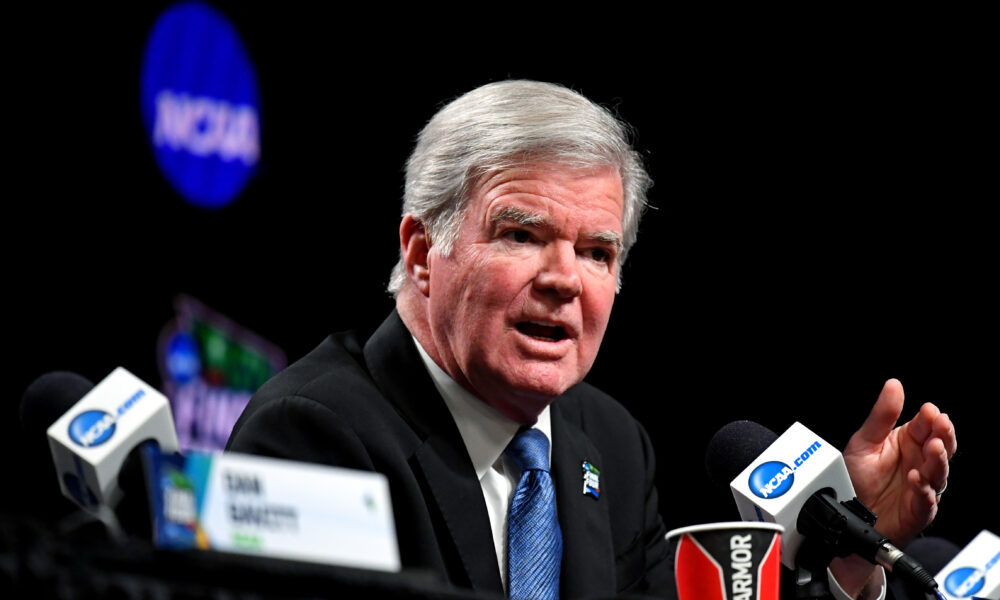Student-athletes wanting to get an immediate waiver of eligibility by the NCAA, following a transfer, is about to get much more difficult.
USA TODAY’s Dan Wolken reported Wednesday the NCAA Division I Council is expected to approve a package of new guidelines that will make it more difficult for college football and basketball players who transfer to receive immediate eligibility.
Through a document Wolken obtained from the NCAA, the council is scheduled to meet Wednesday and review the new guidelines. The updated language, according to Wolken, appears to narrow the circumstances in which student-athletes should be given waivers and raises the documentation requirements to obtain them.
Clemson’s compliance office, as well as the other schools at the Division I level, were made aware of the new proposals last week.
The current language for immediate eligibility has not affected the Clemson football program to this point. Earlier this summer, linebacker Shaq Smith transferred to Maryland upon receiving his degree from Clemson in May. Former running back Tavien Feaster also put his name in the transfer portal, but he will also transfer as a graduate student.
Feaster is expected to graduate from Clemson in August. The NCAA allows graduate student to transfer and play immediately for their new school.
Two players have transferred out of the men’s basketball program at Clemson. However, one was a graduate student in Javan White. Malik William, who redshirt last season due to a concussion and a wrist injury, also decided to transfer. He is still waiting to hear from the NCAA on whether he will receive a waiver to play for SIU this coming basketball season.
Last week, redshirt junior Travis Marr, from the Clemson baseball team, placed his name in the transfer portal. Marr will also be looking to obtain a waiver from the NCAA since he has already used his redshirt season.
The new language the NCAA Division I Council is proposing is not a new set of rules, but new guidelines from the existing rules it will go by, according to Wolken. The NCAA is acting in response to the number of waivers being approved, which a lot of coaches and fans think are inconsistent compared to similar cases.
Last year, the NCAA implemented its current policy that allowed waivers to be granted on a case-by-case basis as long as the student-athlete proved and had “documented mitigating circumstances outside of the student-athlete’s control and directly impacts the health, safety or well-being of the student-athletes,” Wolken reported.
The new policy allowed Michigan quarterback Shea Patterson to receive a waiver after he transferred from Ole Miss, following the Rebels being hit with NCAA sanctions. But the NCAA also allowed Tate Martell immediate eligibility following his transfer from Ohio State, which followed Justin Fields being granted immediate eligibility to play for the Buckeyes this year after he transferred from Georgia.
Many questioned the NCAA’s decision to grant eligibility in both cases, feeling neither deserved to be granted a waiver based on their circumstances. There were other situations in which student-athletes had more pressing circumstances than Fields and Martell and they were not granted immediate eligibility for this coming season.
According to Wolken, in cases where an athlete was run off by a coach or had their scholarship pulled for non-disciplinary reasons, the NCAA will require a written statement from the athletic director at the former school that states the athlete does not have an opportunity to return to his old team. The committee is being instructed to deny cases where the athletes can’t document they’ve been run off.
The updated version also says waivers should be granted for documented cases in which an athlete was a victim of “physical assault or abuse, sexually inappropriate behavior, racial abuse, religious discrimination, questioning of sexuality by a staff member or student at the previous institution,” according to Wolken.
Last year, a waiver was granted in the above circumstances as long as the previous school did not oppose the waiver.
Wolken reports, the new guidelines will also require transfers within a 100-miles radius of their home due to injury, illness to an immediate family member or pregnancy, more paperwork from both schools, including “a treatment plan detailing the student-athlete’s caregiving responsibilities.”
